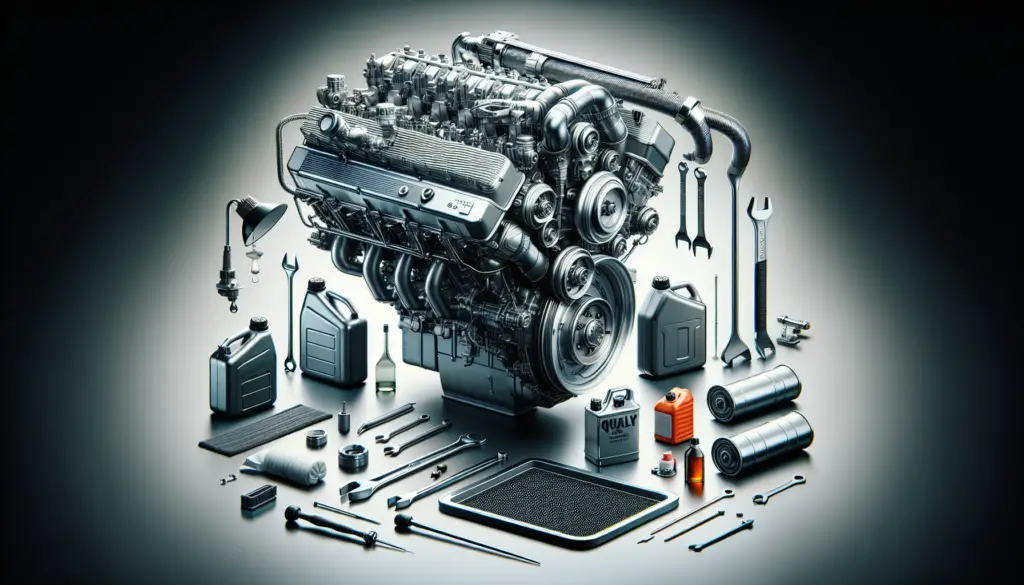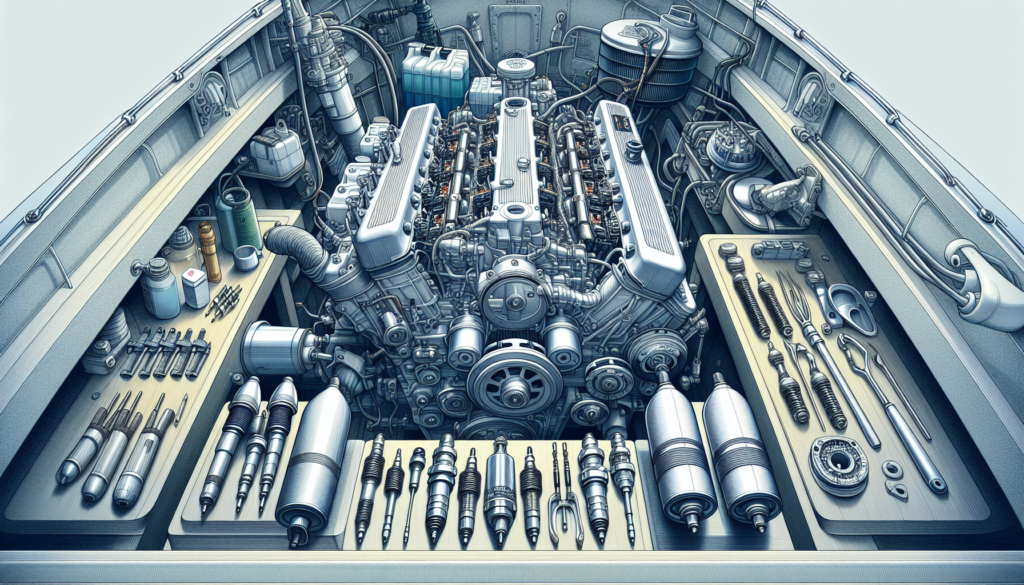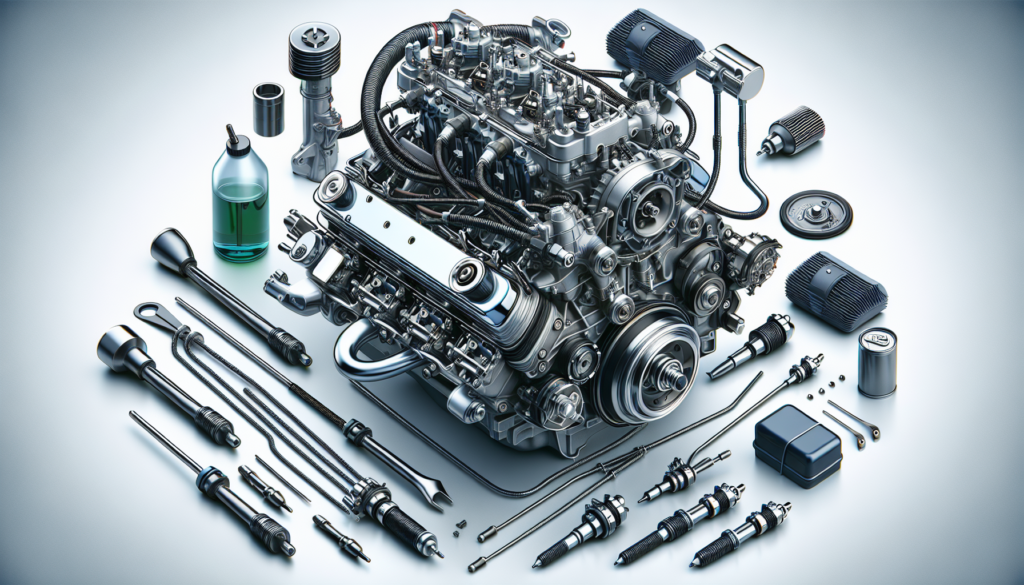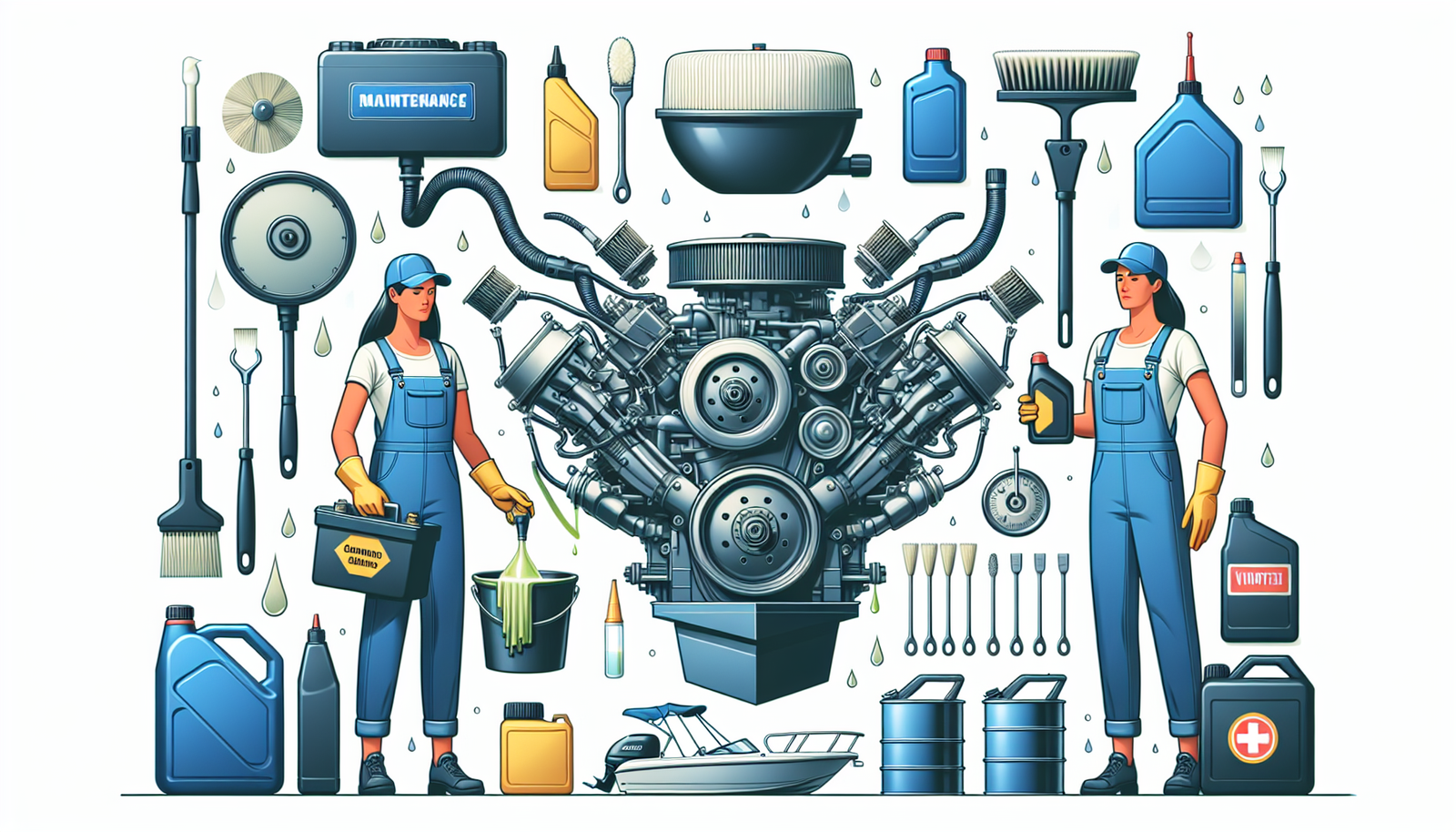Picture yourself out on the open water, the sun is shining, and you’re seated behind the wheel of your boat. That sense of freedom is hard to beat, isn’t it? That’s until your boat engine begins to stutter and gets louder – a nightmare for any boat enthusiast. This article breaks down the simplest and most effective ways to ensure that your boat engine remains in top shape – smooth and quiet, enhancing your boating experience drastically. It’s more than just standard cleaning and regular maintenance; we’re talking about real, practical steps to extend your boat engine’s longevity and save you from inconvenient breakdowns or costly repairs. Now, let’s set sail as you discover the best ways to keep your boat engine running smoothly and quietly.

Knowing Your Boat’s Engine Basics
Boating can be a lot of fun, especially if you’re a water-lover. But, just like operating any other vehicle, there are some basics that you should know, starting with your boat’s engine. As the heart of your boat, understanding how your engine works, the different manufacturers and models, and how to operate it correctly can make a big difference in your boating experience.
Understanding the Mechanics of Your Engine
Think of your boat’s engine as the heart of your vessel, pumping power to every other component. The better you know the complex internal workings, the easier it is to identify any issues that may pop up. Get familiar with terms like pistons, propellers, diesel, ignition, and more. When you understand how it all works together, you’ll have a running boat that’s efficient and reliable.
Knowing the Models and Manufacturers
Boat engines come from a plethora of manufacturers and models. Just like cars, each has its own unique design, performance characteristics, and maintenance requirements. Doing a little research on the type of engine model you own equips you with the knowledge you need to better maintain it, troubleshoot problems, and enhance its performance.
Familiarizing Yourself with Boat’s Engine Manual
Manuals may not be the most interesting read, but they’re packed with valuable information. Your boat’s engine manual provides vital details about your engine, such as its operation instructions, maintenance guidelines, and troubleshooting tips. Make it a point to read it thoroughly, understand it, and refer to it as needed.
Regular Inspection and Preventive Maintenance
The longevity and performance of your boat’s engine largely comes down to your regular inspection and preventative maintenance efforts. This includes oil changes, checking for damages, and regularly scheduled servicing.
Checking the Engine Oil Regularly
Just as with your car, your boat’s engine oil needs regular checking and changing. Oil keeps the boat’s engine parts lubricated and reduces friction. Regularly inspect the oil’s color and viscosity, and replace it as suggested by the manufacturer.
Inspecting for Leaks and Damage
Leakages can lead to major damages, so it’s always a good idea to inspect your engine regularly for leaks or any early signs of damage. By catching a problem early, you’ll be able to have it repaired before it worsens.
Scheduled Servicing and Tune-ups
Even with your regular checks, scheduled servicing and tune-ups are equally important. A professional mechanic will be able to spot any issues you might have missed and conduct others you may not be able to, such as tune-ups.
Proper Fueling
Your boat’s engine performance is largely dependent on its fuel quality and integrity.
Using High-Quality Fuel
Not all fuels are created equal. Some boat engines require high-octane fuel, while others can run just fine on regular unleaded. Using the right, high-quality fuel is important for the optimal performance of your boat’s engine and its longevity.
Understanding the Correct Fuel to Oil Ratio
For outboard engines that use a fuel-oil mix, knowing the proper ratio is crucial. Too much oil can lead to carbon build-up, while too little oil may damage the engine parts due to inadequate lubrication. Check your engine’s manual for the correct ratio for your specific model.
Avoiding Fuel Contamination
Fuel contamination can occur from water, dirt, or oxidization. This can cause serious damage to your engine. Always ensure that your fuel remains clean and uncontaminated.
Battery Care and Maintenance
Your boat’s battery, like your boat’s engine, requires proper care and maintenance to function optimally.
Installing the Correct Battery
Installing the right kind of battery is the first stance in maintaining your boating electrical system. Different boating applications require different types of batteries—make sure you’ve got the correct type for your needs.
Routine Battery Check-up
Regular battery check-ups are important for uninterrupted boating. Check for any signs of wear and tear, ensure that it’s properly charged, and maintain a clean and tight connection.
Proper Battery Charging and Replacement
Overcharging or undercharging your boat battery can significantly shorten its lifespan. Use a reliable battery charger and replace your battery every few years, or as suggested by the manufacturer.

Protection from Elements
The elements can pose serious threats to your boat’s engine if you don’t take steps to protect it.
Engine Winterization
Winterization protects your engine from damage due to freezing temperatures. It involves several steps such as thoroughly cleaning the engine, changing the oil, and making sure all water is drained from the engine to prevent freezing.
Protection from Salt Water Corrosion
Salt water is corrosive and can seriously damage your engine. Regularly rinsing your engine with fresh water and using anti-corrosion products are essential steps to protect your engine from saltwater corrosion.
Ventilation and Cooling System Maintenance
Overheating can lead to serious engine damage. Ensure your boat’s engine is properly ventilated, and regularly check and maintain your boat’s cooling systems.
Regular Engine Cleaning
Keeping your engine clean helps detect problems earlier, prolongs its lifespan, and enhances its performance.
Regular Engine Compartment Cleaning
In addition to the external cleaning, open up the engine compartment and give it a thorough clean. Dirt, leaves, and even small animals can find their way in and interfere with the functionality.
Proper Engine Degreasers Use
Heavy-duty engine degreasers can efficiently remove oil, grime, and other built-up residue from your boat’s engine. Always follow the manufacturer’s instructions when using these products.
Cleanliness Checks During Servicing
When you take your boat in for servicing, ensure that cleanliness checks are part of the procedure. A clean engine is less likely to suffer from problems, and if they do occur, they are easier to spot.

Correct Engine Operation
Correctly operating your engine goes a long way in enhancing its performance and prolonging its lifespan.
Optimal RPM for Smooth Operation
Every boat engine has a ‘sweet spot’—an RPM range where the engine runs most efficiently. Knowing this range and operating within it can improve fuel efficiency and reduce wear.
Proper Acceleration and De-acceleration Practices
Rapid acceleration and deceleration can put a lot of strain on your engine. Smooth and gradual changes in speed are better for your engine and your passengers!
Warming Up and Cooling Down Periods
Just like a workout, proper warm-ups and cool-downs are important for your boat’s engine. A good warm-up allows the engine to reach its correct operating temperature, while a cooling-down period helps prolong the life of the engine.
Engine Noise Reduction
Boat engine noise can be a nuisance. Thankfully, there are ways to reduce it.
Understanding the Sources of Noise
Before you can reduce noise, you need to understand where it’s coming from. Is it the engine, propeller, or the hull? Each source requires a different approach towards noise reduction.
Investing in Noise Reduction Materials
Investing in noise reduction materials, like insulation materials, can help minimize engine noise. These materials absorb the vibrations and noise created by the engine, which makes for a quieter boat ride.
Proper Insulation and Soundproofing Methods
Insulating the engine compartment and using soundproofing methods can help to drastically reduce boat noise. Have a professional install these materials for you, or do it yourself if you’re handy with tools.

Maintaining Other Engine Components
The health of your overall boat engine depends on the health of each of its components.
Propeller Maintenance
Your boat’s propeller directly affects its performance. Regular inspection, cleaning, and repair of the propeller are necessary to keep it in top form.
Care for the Exhaust System
The exhaust system maintains the engine’s performance by releasing the exhaust gases generated by the internal combustion process. Routinely checking and maintaining it ensures optimal performance.
Maintaining Other Integral Engine Parts
Aside from the aspects already mentioned, other integral parts of the engine like the belts, hoses, impellers, etc., need to be maintained regularly. They may be small parts, but their failure can lead to big problems.
Professional Servicing and Assistance
There’s only so much you can do by yourself. Sometimes, professional help is required.
Knowing When to Seek Professional Help
If you’ve tried to troubleshoot an issue and still can’t figure out what’s wrong, it may be time to call in a professional. Similarly, routine servicing should be left to professionals who can spot potential issues and address them before they exacerbate.
Keeping Record of Service and Inspection
Keeping a record of all your services and inspections can help you keep track of what’s been done and what needs to be done. Plus, it can prove valuable should you decide to sell your boat in the future.
Finding Reliable Marine Mechanics
Perhaps most importantly, it’s beneficial to find a reliable marine mechanic that you trust. Much like you would with your car mechanic, you want someone who can provide quality service, offer fair prices, and ensure your boat runs smoothly.

